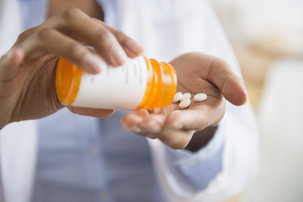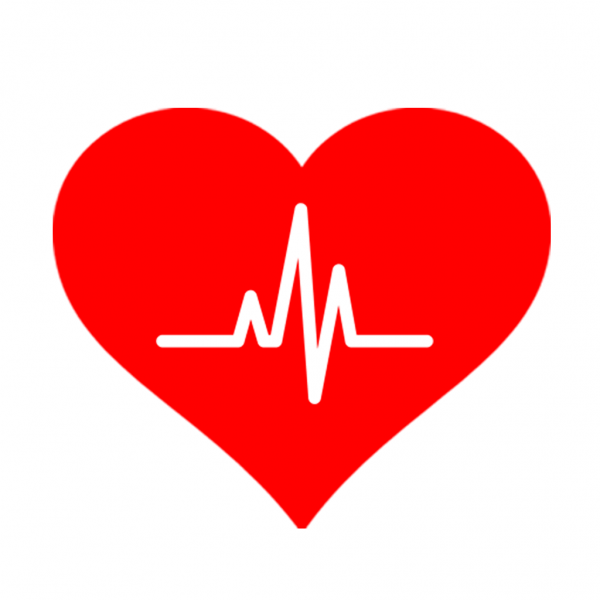You probably realize that many things can affect your exercise performance – including your eating and sleeping habits, your training regimen and your state of mind – but the medications you take may not even be on your radar screen.
Sure, you probably recognize that swallowing a sedating antihistamine (like Benadryl) or a benzodiazepine (like Ativan, Valium or Xanax) is likely to make you drowsy and impair your coordination at the gym. But you might overlook the fact that other drugs could also compromise your energy or balance, your hydration status, your concentration or stamina or other fitness-related factors.
“Not everyone will have the same effect with [the same] medications, and a person’s response to a medication can change over time,” notes Dr. Rick Figler, a primary care sports and exercise medicine physician at The Cleveland Clinic Sports Health Center. “If you feel your exercise is being affected by the medications you take, bring that information to your doctor.”
Here’s a look at six types of drugs that can impact your sporting life, with advice on how to handle the situation:
The Medications:
Anticholinergic drugs (to treat bladder-control issues and some gastrointestinal conditions)
Possible Effects: Common side effects include dry mouth and drowsiness, which can be uncomfortable during a workout. Worse, the medication may decrease your ability to sweat, which can lead to dizziness and overheating while you’re exercising, especially in hot weather, says Bob Lobo, director of clinical programs in the department of pharmaceutical services at Vanderbilt University Medical Center in Nashville. These effects can impair your coordination and balance, among other abilities.
How to Deal: Your best bet is to exercise before you take the medicine, Lobo says. Keep in mind: The effects often depend on the dosing so talk to your doctor to see if you can get by with a lower dose, Figler suggests. “Sometimes people get used to [the effects] as they adjust to the medication. If you don’t, you might try a different medication in the same class” because it may not have the same side effects for you.
The Medications:
Antihistamines (used to treat allergies, colds and sleep problems)
Possible Effects: It’s widely known that first-generation antihistamines like Benadryl can cause drowsiness and impaired coordination and concentration. But even some of the newer, non-sedating antihistamines such as Zyrtec, Allegra and Claritin can make you feel tired, which can take a toll on your stamina (though to a lesser extent than the first-generation ones). What’s more, antihistamines can affect your body’s “temperature regulation and interfere with sweating and cooling mechanisms so you may overheat, especially when exercising in the summer,” says Dr. John Higgins, a sports cardiologist at the McGovern Medical School at The University of Texas Health Science Center at Houston.
How to Deal: If possible, exercise before you take an antihistamine to sidestep these effects, suggests Lobo. “If you’re taking an antihistamine for allergic rhinitis, use an intranasal corticosteroid [spray] like Flonase, which doesn’t affect exercise performance at all.” Instead of taking a multi-symptom drug for a cold, it’s better to choose a medication that targets your exact complaint, whether it’s headache (in which case you’d want a pain reliever) or nasal congestion (in which case, a decongestant is the way to go), Figler says. If you’re bothered by dry mouth while you exercise, take frequent sips of water or chew gum while you work out.
The Medications:
Beta blockers (to treat high blood pressure, abnormal heart rhythms, chronic migraines and anxiety)
Possible Effects: These drugs decrease your heart rate, blood pressure and cardiac output, which can make you feel tired, sluggish and short of breath during a workout. As a result, you may not perform at the level you want to – running may take more effort or an aerobics class may feel more rigorous than it used to. “Sometimes it’s a dose effect,” Figler says, “and sometimes it’s a tolerance effect that goes away over time.”
How to Deal: Because of the medication’s effects, you won’t be able to reach your target heart rate while you’re exercising “but this doesn’t mean you aren’t benefitting from exercise!” Higgins says. Instead, rely on the Ratings of Perceived Exertion, or RPE, scale to gauge how hard you feel like you’re working on a scale of 6 (no exertion at all) to 20 (maximal exertion). Remember, too, that beta blockers can make you susceptible to orthostatic hypotension (a drop in blood pressure that occurs when you stand up from a sitting or lying-down position), points out Lara Ellinger-Fetzer, a drug information and medication safety pharmacist at Northwestern Memorial Hospital in Chicago. So “move carefully and avoid sudden changes in posture” while you’re exercising or stretching. If you’re taking a beta blocker for high blood pressure or migraines and you can’t tolerate the effects on your workouts, talk to your doctor about whether another type of medication might be an option for you.
The Medications:
Decongestants (to treat colds, sinus pressure and allergies)
Possible Effects: Some decongestants contain stimulants (such as pseudoephedrine) that can make you feel jittery and increase your heart rate and blood pressure. “You may notice a higher heart rate than usual, more like a racing heart,” says Frank Romanelli, a professor of pharmacy at the University of Kentucky in Lexington and a marathon runner.
How to Deal: Your best bet is to take the decongestant after your workout, not before – or to “use a decongestant nasal spray (like Afrin), which won’t affect you systemically,” Romanelli says.
The Medications:
Diuretics (to treat high blood pressure, heart disease and fluid retention)
Possible Effects: Because these drugs flush fluids from the body, they can cause more frequent urination, reduce your blood volume and blood pressure, and decrease blood flow to your muscles. These changes can increase your risk of experiencing dehydration, electrolyte imbalances, fatigue and muscle cramps while exercising – and compromise your balance and coordination, Higgins says. These changes also can ratchet up the risk of experiencing heat illness if you’re exercising in hot weather.
How to Deal: Talk to your doctor about whether you can adjust the timing of your dose to avoid these effects, Romanelli advises. Drink more fluids than usual before, during and after exercise to prevent dehydration, and consider having a diluted sports drink or a small banana to pump up your potassium level, Figler suggests. If symptoms persist, talk to your doctor to see if you can adjust the dosage.
The Medications:
Statins (to treat cholesterol abnormalities)
Possible Effects: Muscle aches and pains are common side effects of these drugs, and these can affect your exercise performance. With statin drugs, some people also experience increased fatigue, reduced VO2 max (a measure of the maximum volume of oxygen you can use during aerobic exercise) and reduced exercise performance, Higgins notes.
How to Deal: Changing from one statin to another may help so talk to your doctor about this, Figler says.







